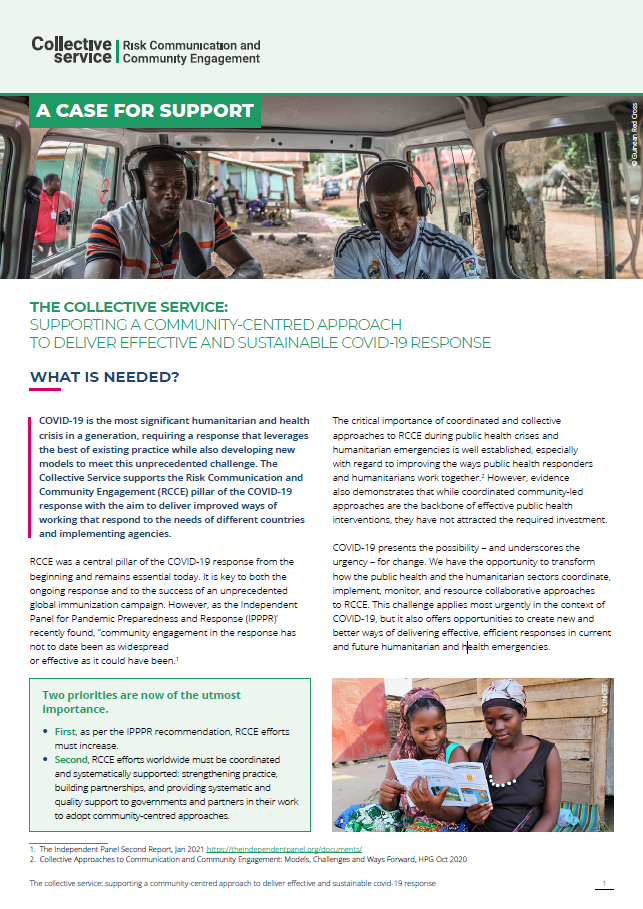The collective service: supporting a community-centred approach to deliver effective and sustainable covid-19 response
Description
The Collective Service is a collaborative partnership between the International Federation of Red Cross and Red Crescent Societies (IFRC), United Nations Children’s Fund (UNICEF), and the World Health Organization (WHO), which leverages active support from the Global Outbreak Alert and Response Network (GOARN), and key stakeholders from public health and humanitarian sectors. It was launched in June 2020, after endorsement by the Inter- Agency Standing Committee Principals in April 2020, and with support from the Bill and Melinda Gates Foundation. The aim of the Service is to ensure that the complementary strengths of all partners are supported and leveraged to deliver the greatest impact, and to bring together a wide range of organisations involved in RCCE policy, practice and research to provide practical support to those delivering on the ground.
RCCE was a central pillar of the COVID-19 response from the beginning and remains essential today. It is key to both the ongoing response and to the success of an unprecedented global immunization campaign. However, as the Independent Panel for Pandemic Preparedness and Response (IPPPR)’ recently found, “community engagement in the response has not to date been as widespread or effective as it could have been. The critical importance of coordinated and collective approaches to RCCE during public health crises and humanitarian emergencies is well established, especially with regard to improving the ways public health responders and humanitarians work together. However, evidence also demonstrates that while coordinated community-led approaches are the backbone of effective public health interventions, they have not attracted the required investment. COVID-19 presents the possibility – and underscores the urgency – for change. We have the opportunity to transform how the public health and the humanitarian sectors coordinate, implement, monitor, and resource collaborative approaches to RCCE. This challenge applies most urgently in the context of COVID-19, but it also offers opportunities to create new and better ways of delivering effective, efficient responses in current and future humanitarian and health emergencies.
Additional languages

DETAILS
Publication
Authors
Emergency
Scope
Language
Region
Keywords

